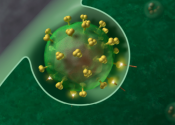COVID-19 virus can stay in the body more than a year after infection, research finds
The COVID-19 virus can persist in the blood and tissue of patients for more than a year after the acute phase of the illness has ended, according to new research from UC San Francisco that offers potential clues to why some ...
Mar 7, 2024
0
597









